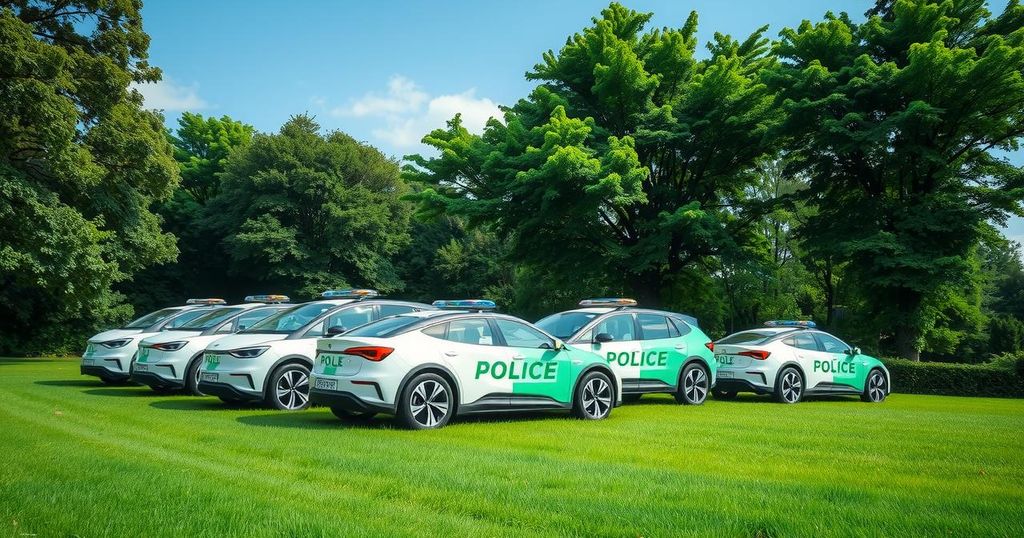Uganda’s government has initiated a pilot program to deploy electric vehicles for police patrols, led by the Ministry of Water and Environment. This move aims to address climate change, as highlighted by concerns over severe weather patterns and transport inefficiency. Officials are advocating for policy reforms to promote alternative energy sources and proactive disaster preparedness measures.
The Ugandan government has announced a pilot program to introduce electric vehicles for police patrols as part of its climate change combat strategy. This initiative was revealed by Hon. Beatrice Anywar, the State Minister for Water and Environment, during a plenary session led by Deputy Speaker Thomas Tayebwa on March 6, 2025. The program aims to enhance environmental sustainability by transitioning the police vehicle fleet to electric alternatives.
During the preceding day’s discussions, Hon. Lawrence Songa, Chairperson of the Committee on Climate Change, highlighted the looming threat of severe rains and floods tied to the ongoing heatwave. He stressed the necessity for the government to implement proactive disaster preparedness measures instead of waiting for reactive relief during crises. Songa noted the heatwave’s detrimental impact on health, agriculture, and the economy, underscoring the importance of active preparations to address these challenges.
Critique of Uganda’s traffic system was voiced by Songa, who stated that congestion significantly contributes to heat generation and increased emissions. He pointed out that the current transportation inefficiencies lead to unnecessary fuel consumption and financial strain on citizens. In light of extreme weather driven by both local and global factors, Hon. Christine Kaaya, Shadow Minister for Environment, called for a comprehensive governmental response to assess the nation’s contributions to climate adaptation and mitigation efforts.
Additionally, Hon. Joseph Ssewungu, representing the Leader of the Opposition, urged for the establishment of stronger anti-deforestation policies and incentives to promote alternative energy sources. He argued that the high costs associated with gas hinder its usage, advocating for tax reductions to stimulate adoption of alternative energy solutions.
In response, Minister Anywar indicated that the Uganda Police Force would initiate the shift to electric vehicles. She shared that during a recent Cabinet meeting, it was decided to prioritize the Ministry of Internal Affairs for the rollout of electric motorcycles and vehicles, particularly for police officers who frequently travel.
The Ministry of Environment anticipates that the current heatwave will abate by mid-March, paving the way for cooler weather and rainfall. Anywar attributed the extreme conditions to various factors, including seasonal dryness, the equatorial sun’s position, and urban heat phenomena. She assured lawmakers that costs of electric vehicles are expected to drop significantly with the start of oil and gas production in the Albertine region, noting that the government has already subsidized 40 percent of gas cylinder costs to improve accessibility.
In summary, Uganda is taking significant steps toward environmental sustainability through the introduction of electric vehicles for police patrols as part of a broader strategy to combat climate change. Key government officials have voiced the urgency of addressing climate-related challenges, emphasizing proactive preparedness measures. Through collaborative efforts and policy reforms, the Ugandan government aims to mitigate the impacts of extreme weather and promote the adoption of sustainable energy solutions. These initiatives reflect a commitment to reducing carbon emissions and addressing the pressing climate crisis.
Original Source: www.zawya.com






